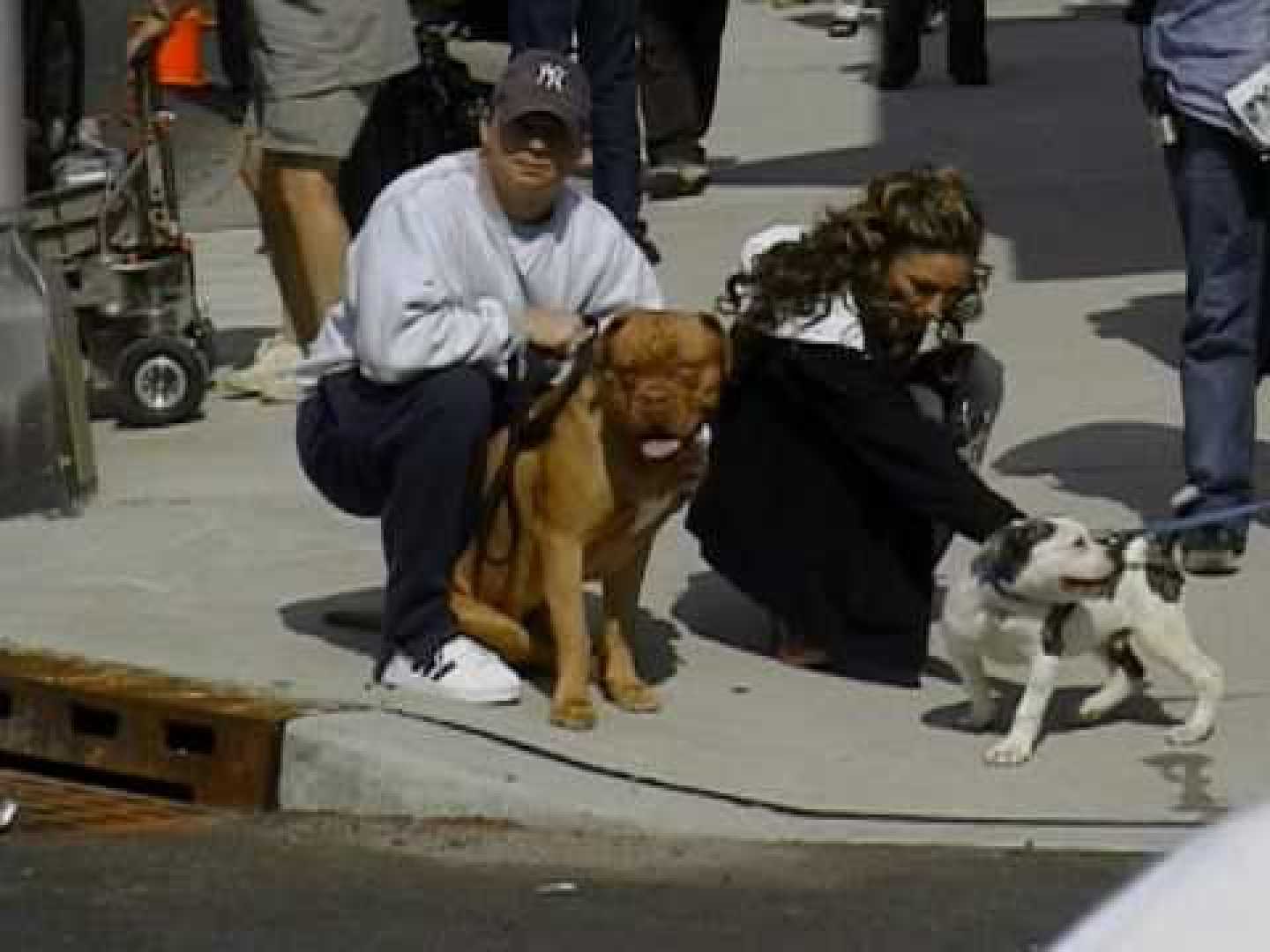Entertainment
Struggles of a Sopranos Star: The Complicated Life of James Gandolfini

NEWARK, N.J. – In a compelling excerpt from Jason Bailey‘s upcoming book, Gandolfini: Jim, Tony and the Life of a Legend, the late James Gandolfini’s journey through fame and personal turmoil is unveiled, particularly during the high-pressure years of HBO’s iconic series The Sopranos. From his Emmy-winning performance as Tony Soprano to a series of absences that concerned peers and producers alike, Gandolfini’s life reflects the struggles of a gifted actor battling his inner demons.
The strains of portraying a complicated mobster began to take their toll on Gandolfini as early as season three. Costar Steven Van Zandt recalled his worry over Gandolfini’s absences, stating, “Most of my time was spent talking him into coming back the next day… We’d have the same conversation at least once a month.” He frequently reminded Gandolfini about the impact of his decisions not only on himself but also on the crew relying on him for their livelihoods.
Gandolfini’s time off sometimes resulted from the pressure of tackling difficult scenes, struggles with memorization, or simply wanting to prolong a weekend of partying—an escape from his turmoil at home. Script supervisor Christine Gee noted, “He likes to have a good time, but sometimes, some people don’t know when to stop.”
On days he was unresponsive to his driver, the production faced chaos. Assistant production coordinator Steve Kornacki remembered scrambling to adapt, explaining, “So that could throw a day into a tizzy… you had to punt and figure out what to do until somebody got ahold of Jim.”
Location manager Mark Kamine described the contingency plans set in place when Gandolfini’s attendance was unpredictable. “You pull up whatever work you can do without him until he gets in, or says he’s not coming in,” he said. More often than not, when Gandolfini did arrive, late and perhaps hungover, on-set crew scrambled to make the day’s shooting work.
Despite the burdens on production, cinematographer Phil Abraham noted that Gandolfini often provided advance warnings about his absences. “Jim gave them advanced warnings, like I’m not coming in tomorrow. And he wouldn’t come in tomorrow!” His role as Tony was heavy, pushing him into a cycle of stress. “I know playing this character was a huge burden on this guy,” Abraham said, emphasizing Gandolfini’s struggle with the character’s complexities.
As production continued, the pattern of absenteeism emerged, noticeable to crew members like Gee. “You would just get a sense, wow, he’s been pretty good. Next thing you know, boom—that would happen.” Producers often adjusted schedules to accommodate Gandolfini’s unpredictable attendance, though sometimes this backfired, leading to difficult workflows.
The issue was compounded by concerns over his mental health, something that both his colleagues and Gandolfini recognized. He once admitted, “I’m not sane at all when I’m doing the show,” highlighting the immense pressure he felt to deliver top-notch performances amid personal struggles. Executive producer Ilene Landress pointed out that Gandolfini’s drive for excellence often led to detrimental self-criticism: “Jimmy was never going to give you a B performance. He was always going to give you an A performance.”
Amid this chaotic backdrop, personal battles impacted not only Gandolfini but also his co-stars. Edie Falco, who battled her own health issues, expressed frustration. “I remember her getting just really irate, and saying how she’s struggling so hard to do all the right things while he’s pissing his away.” Kamine, echoing Falco’s sentiments, noted that Gandolfini’s choices affected everyone’s hard work.
The crew largely leaned toward empathy for Gandolfini. “It’s an illness. It’s not a light switch that you could just shut off,” Gee remarked, reflecting on the understanding amongst the team about the struggles affecting Gandolfini.
By the end of The Sopranos, the consequences of Gandolfini’s struggles produced an intricate layer of character and performance within the series. His relationship with Tony Soprano mirrored his own realities, raising questions about fame and personal identity in an unforgiving industry.
Ultimately, his story is a poignant reminder of the intricate dance between art and the personal lives of actors. The pressures that come with fame are undoubtedly multifaceted, and Gandolfini remains a symbol of the challenges that can come with being a larger-than-life character both on and off the screen.












